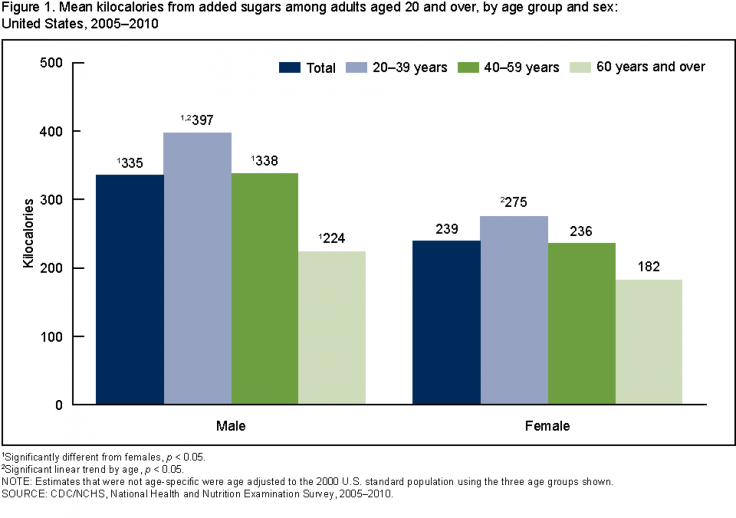Added Sugars Are 13 Percent Of U.S. Adults’ Calorie Intake; Younger Men Are Biggest Consumers, Says CDC Report
Sugar, sugar, sugar. Apparently U.S. adults can’t get enough of it.
According to a new Centers for Disease Control and Prevention report, added sugars makes up 13 percent of U.S. adults’ calorie intake.
The report is based on government data collected from 2005 to 2010, which shows that men consume more total calories from sugar than women.

Added sugars include sweeteners that are added to processed and prepared foods, which have been linked to a decrease in essential micronutrient intake that leads to an increase of a person’s bodyweight.
The CDC reports that one-third of U.S. adults are obese.
Connie Diekman, director of university nutrition at Washington University in St. Louis, says this report reveals that “most people continue to consume more food from this category that often does not provide the nutrition of other food groups” and “shows that efforts to educate Americans about healthful eating are still falling short.”
The 2010 Dietary Guidelines for Americans says that only 5 to 15 percent of a person’s daily calorie intake should be from sugars and solid fats.
And contrary to what most people may think, researchers also found that most added sugars come from food -- not drinks. In fact, 67 percent of calories from added sugars come from food -- most coming from foods eaten at home -- and 33 percent from drinks.
Dr. Bethene Ervin, a nutritional epidemiologist at the National Center for Health Statistics, said, “The message may be getting through to adults with higher income and education levels.”
Men in the lowest income level consume 14.1 percent of their calories from added sugars compared with men in the highest income level, who consume added sugars at 11.5 percent of their caloric intake. For women, the lowest income level group consumes 15.7 percent and the highest, 11.6 percent.
“We need to make more efforts to reach specific groups that aren't making the changes as readily," Ervin said. "These are empty calories, so it would be wise to make healthier food choices."
Other key findings from the report:
- The mean percentage of total calories from added sugars decreased with increasing age and increasing income.
- Non-Hispanic black men and women consumed a larger percentage of their total calories from added sugars than non-Hispanic white and Mexican-American men and women.
To view the full report, click here.
© Copyright IBTimes 2024. All rights reserved.





















